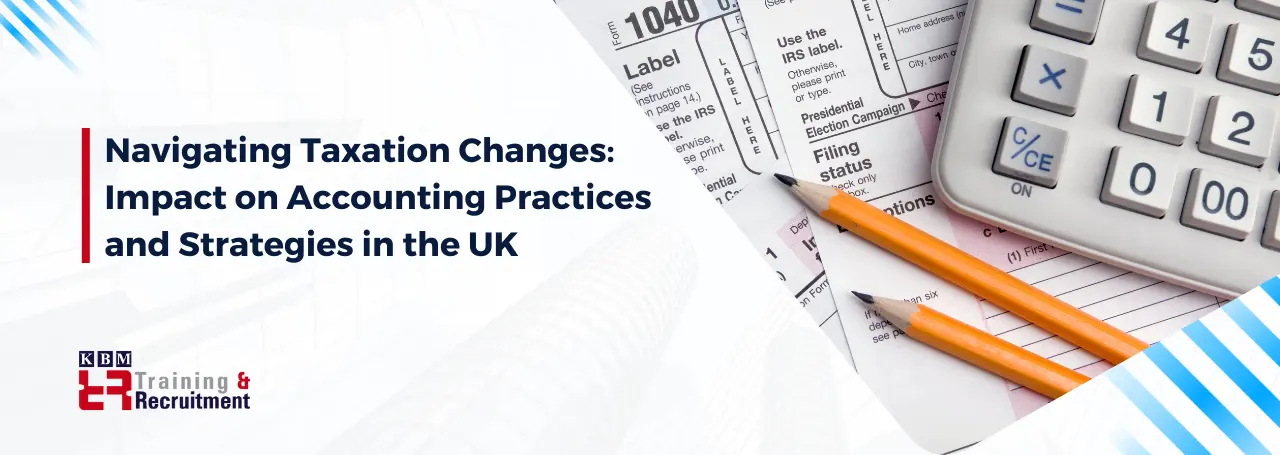Taxation is a cornerstone of the United Kingdom's economic framework, subject to periodic revisions and adjustments. These changes profoundly influence the accounting practices and strategies businesses and individuals employ.
In this comprehensive article, we will explore the dynamic and evolving tax landscape in the UK, examining how these shifts profoundly impact accounting practices and the strategies required to adapt effectively.
Understanding Taxation Changes
Taxation modifications in the UK encompass nuanced adjustments to tax rates, thresholds, allowances, and the introduction of new tax laws and regulations. These alterations often stem from economic shifts, shifting fiscal policies, or recalibrated government priorities.
Accountants and financial professionals must remain informed and thoroughly conversant with these changes, as their role is pivotal in ensuring compliance and minimising tax liabilities for their clients and organisations.
Compliance and Reporting
Taxation changes demand a meticulous overhaul of accounting practices to achieve accurate compliance and reporting. This involves a profound understanding of new tax codes, meeting stringent filing deadlines, and impeccably adjusting tax forms and accompanying documentation.
Tax Planning
The continually shifting taxation landscape presents a tapestry of opportunities for tax planning strategies. Accountants must navigate this terrain with precision, rigorously assessing these changes, devising innovative approaches that reduce tax liabilities and adhere scrupulously to the letter of the law.
Accounting Software and Technology
Introducing new tax laws often necessitates robust adaptations to accounting software and technology. Accountants must stay at the vanguard of software updates, harnessing technology effectively to streamline operations and enhance accuracy.
Client Education
Accountants are pivotal as educators for their clients, illuminating how taxation changes intricately affect their financial tapestry. This extends to elucidating potential tax savings and adroitly steering clients towards adjustments in their financial plans.
Record-Keeping
The necessity for meticulous record-keeping assumes paramount importance in the face of evolving taxation laws. Accountants must ensure clients maintain records that stand as irrefutable evidence, bolstering their tax filings.
Continuous Learning
Accountants must engage in an unceasing professional development regimen, staying current and ahead of the curve regarding tax law changes. This commitment may involve active participation in seminars, workshops, and vigilant tracking of official government pronouncements.
Collaboration
Collaborating with tax specialists and legal experts can provide invaluable insights into new tax laws and their far-reaching implications, fostering a more holistic approach to tax management.
Scenario Analysis
Accountants can offer clients a sophisticated perspective by conducting exhaustive scenario analyses. This meticulous evaluation examines the impact of taxation changes on their financial landscape, empowering clients to make astute decisions and craft resilient financial plans.
Proactive Communication
Upholding unobstructed lines of communication with clients throughout the year, rather than solely during tax season, is paramount. Proactive communication empowers timely adjustments to tax strategies and financial plans, ensuring a dynamic response to evolving taxation laws.
Tax-Efficient Investments
Advising clients on tax-efficient investment options can significantly mitigate the impact of taxation changes. These strategies may encompass directing clients towards tax-advantaged accounts or designing bespoke investments meticulously tailored to align with their long-term financial objectives.
Conclusion
Effectively navigating the ever-shifting taxation landscape in the UK demands a proactive and adaptable approach and an erudite one from accountants and financial professionals. Remaining abreast of tax law changes, fine-tuning accounting practices, and implementing innovative strategies are pivotal steps to ensure ethical compliance and maximise economic outcomes for businesses and individuals. In this dynamic tax terrain, those who adapt will thrive, safeguarding their clients' financial well-being amidst the ever-evolving fiscal milieu.






















